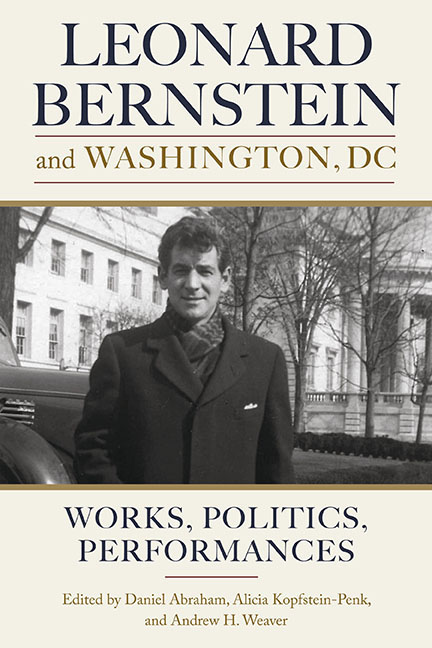3 - Bernstein and McCarthyism
Published online by Cambridge University Press: 28 April 2020
Summary
According to an FBI account of June 24, 1941, Leonard Bernstein “was reported to have been one of the leaders of the John Reed Society, an organization at Harvard University. It has been reported that this organization was a Communistic group which had been outlawed by university officials.” These few lines were the first in what would become Leonard Bernstein's FBI file. By the early 1950s, that file would grow to hundreds of pages of reports on Bernstein's various appearances, meetings, speeches, and signed petitions, which would be used by various governmental authorities and business interests to associate Bernstein with communism and to blacklist him. That dossier would also contain FBI director J. Edgar Hoover's request for permission from the attorney general to seize and imprison Bernstein without trial in the event of a threat to the security of the United States. By the early 1970s, file entries would contain supposed revelations about Bernstein's scheming with the antiwar radical and federal prisoner Daniel Berrigan, and suspected plans to publicly embarrass President Nixon. The file would also contain Hoover’s orders that underlings forge letters and otherwise surreptitiously intimidate and harass Bernstein so as to dissuade him from further radical activities. Was Bernstein a treasonous desperado? Or was he a victim of a politically inspired Red Scare? This chapter shall argue the latter.
The Young Activist and the Beginnings of the FBI File
When Bernstein entered Harvard in 1935, he was allied with a rising American left that based its strength not only on millions of newly unionizing workers and farmers but also on urban Democratic machines, journalists, and artists allied against the conservative right and homegrown American fascists. Bernstein's fervent New Deal progressive outlook only deepened with exposure to liberal mentors on the Harvard faculty, to friends such as Aaron Copland, and to Copland's progressive-minded associates in New York, such as Clifford Odets, John Garfield, and Elia Kazan of the influential theater collective The Group Theatre (1931–41). By his senior year, Bernstein befriended the radical Marc Blitzstein, having produced Blitzstein’s The Cradle Will Rock, an opera that revealed the oligarchical power behind corporate and governmental institutions.
- Type
- Chapter
- Information
- Leonard Bernstein and Washington, DCWorks, Politics, Performances, pp. 67 - 85Publisher: Boydell & BrewerPrint publication year: 2020



